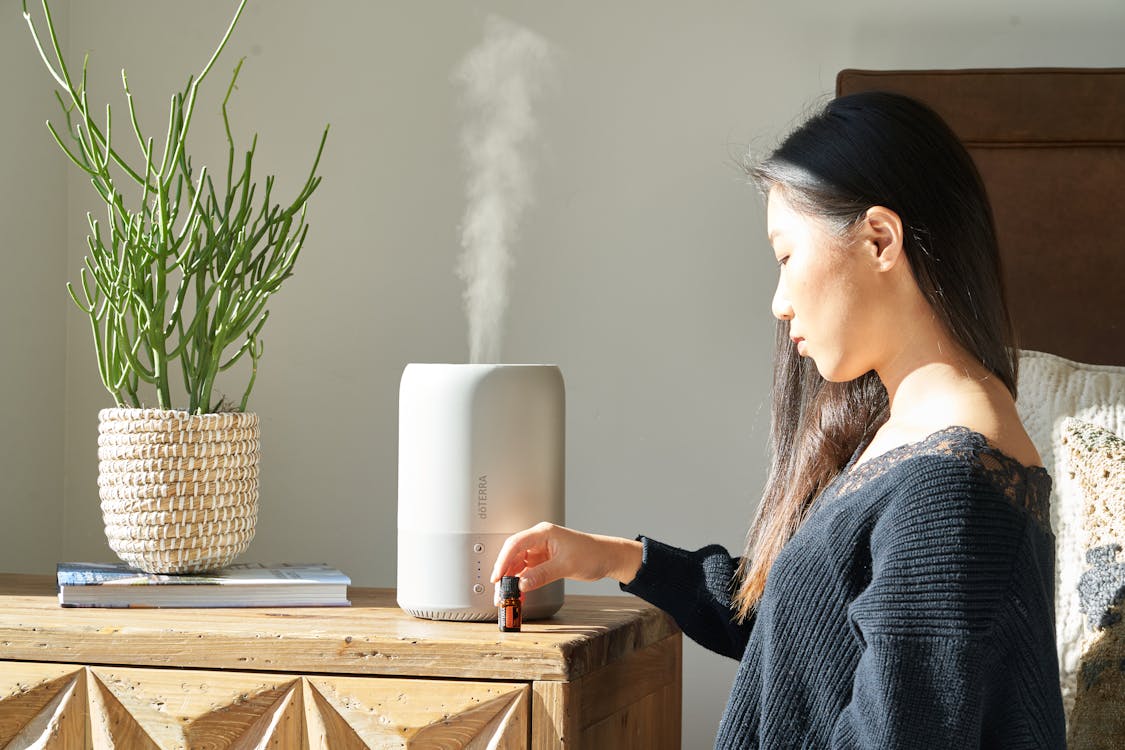What Is The Ideal Humidity Level At Home? - How To Maintain It & Side Effects Of High Humidity Level.

During the warmer seasons, the relative humidity in your home tends to be higher than during the colder seasons.
The relative humidity is the percentage of actual moisture in the air compared to the total capacity for moisture. At any given time, the RH value represents the total amount of water the atmosphere can have. As the temperature rises, the amount of water vapour in an atmosphere increases. Therefore, the RH value decreases when the temperature rises.
If your indoor humidity level is too high, it could affect your property and overall well-being. You don't need to worry about your finances; there are ways to lower your humidity level to the ideal home humidity level without spending any money.
What percentage of humidity (relative air moisture) do you think is best for your home during the hot months? According to the EPA, the humidity (relative air moisture) inside homes and offices should IDEALLY be between 20-40%, but anything between 20-55% humidity is a comfortable humidity level.
To measure the level of moisture in your house, use a hygrometer which is a handheld device that measures both the temperature (in degrees Fahrenheit) and the relative humidity (in percentage). We will cover some of the issues that might arise due to high humidity, the perfect humidity level, and various ways to control the ideal home humidity level.
How can high humidity levels at home affect us?
The following is a list of some of the effects of humidity:
1. Health Issues
Most people, particularly during the warmer months, may experience discomfort at high levels. In hotter temperatures, your sweat glands work harder to keep you cool. But in excess humidity or excess moisture, your sweat evaporates before it can do any good. So instead of cooling off, you get wetter and hotter. And because your work doesn't dry quickly enough, you're left feeling sticky and uncomfortable. You might feel thirsty, too.
This profuse perspiration can also bring on dry skin issues such as heat rash, itching, and an overgrowth of germs on the skin.
Mould and bacteria thrive best in warm, moist places, so mould and bacteria could increase if your home is damp. You might notice mould growth in your bathroom or kitchen, where extra moisture collects. These areas should be kept dry and clean to prevent mould from growing.
2. Damage Property
The adverse effects of the high humidity are not confined to your health; they can also structural damage your property and the things inside it, such as damage to wood furniture and paints. The following are some examples of the harm that can be caused to your property when there is excessive moisture:
- The expansion of the wood causes the windows and doors to become stuck.
- Bacterial proliferation can lead to unpleasant odours.
- Wallpapers and paint are both starting to peel.
- The mould formation can undermine the structure's integrity and harm furnishings.
Achieving the appropriate balance inside your home is necessary to prevent these typical issues associated with excessive humidity. Do you know? You can also use a dehumidifier to dry your clothes. Read our article about the best dehumidifier for drying clothes.
How can we solve the humidity issue?
Finding the perfect moisture level in your home can be tricky. Here we'll explain how to avoid creating problems by keeping the moisture content of your house within an optimal range.
As was said before, you should try to get a relative humidity level that falls somewhere in the centre of the range suggested by the EPA, which is between 30-50% humidity. However, how should you accomplish this goal if your area experiences very high amounts of moisture throughout the summer? There are several ways to control the humidity level of your home. We have explained some of the following:
1. Using a humidifier

If you live in an area where temperatures tend to get hot during the summer time. In that case, you might consider installing a humidifier with your central AC system. By doing so, you'll be able to keep your house at a comfortable temperature without worrying about whether there is enough moisture in the atmosphere.
During the summer months, using a cool-misting humidifier can help increase the moisture level in the air without raising the room's ambient air temperature. There are many types of humidifiers, but cool-misting humidifiers are also considerably cheaper and easier to use than warm mist humidifiers.
If you want to use a cool mist humidifier, cleaning it daily must maintain high air quality. Make sure that the water is not left in the gadget for longer than a period of twenty-four hours.
Putting away the humidifiers during the hot summers is not a good thing. Humidifiers are an excellent way to keep your home cool and comfortable during the hot summers. However, if your AC is drying up the house, then an AC isn't the right option for you. Moreover, if you are wondering whether someone could use an air purifier and humidifier in the same room, read our article to find out.
2. Try Opening a Window



